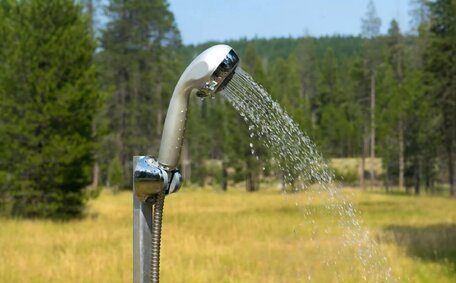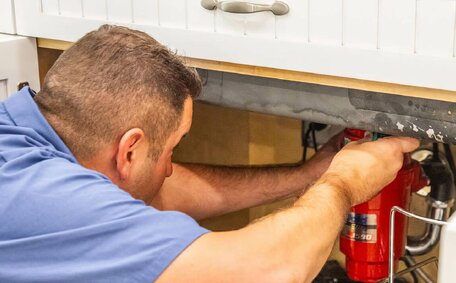The Financial Costs of Neglecting Minor Plumbing Issues
Continually overlooked plumbing issues like dripping taps or clogged drains can lead to substantial costs over time. A small water pipe leak can waste more than 3,000 gallons each year, driving up utility bills. Furthermore, uncontrolled water flow can lead to structural damage to your home, resulting in even bigger expenses in the future.
A leaky pipe can result in accumulations of stagnant water, increasing the risk of flooding, mould, and foul smells. Clearing major blockages can cost between $150-300, much more than an early $100 drain cleaning. Proactively resolving these issues can prevent expensive repairs and save you money.
Delaying inexpensive repairs for issues like a running toilet can lead to system failures and burst pipes, causing appliance damage. Replacing plumbing components can start at $1,000, escalating with more complex issues.
The market value of your home can be impacted by unresolved plumbing problems, as potential buyers consider the cost of necessary upgrades and repairs.
Ultimately, by addressing minor leaks and clogs promptly through regular maintenance, you can save significantly and prevent expensive emergency repairs.
How Small Leaks Can Lead to Bigger Problems
A small water leak, while seeming trivial, can cause significant issues if overlooked. Dripping taps and showerheads account for significant water wastage, with up to 3 gallons daily or over 1,000 gallons annually, leading to an increased water bill. Leaks may also signal underlying issues such as pipe corrosion or loose fittings.
Undetected leaks can foster excess moisture, causing damage through mould and mildew growth. For instance, a minor pinhole leak can unleash upward of 250 gallons within just one day.
Water exposure can compromise the structural integrity of the timber in your home’s framework.
An ignored leaky joint or faulty shutoff valve can lead to a burst, rapidly transforming a small problem into a major one. Early intervention avoids considerable damage that could necessitate extensive repairs, sometimes involving the dismantling of walls, floors, and furniture.
What starts as minor leaks can result in flooding, with gallons of water gushing into rooms swiftly. Such leaks can lead to mould in ductwork, posing a risk to HVAC systems. Costs for fixing burst pipes can range from $1,000 to tens of thousands.
Clearly, the dangers ignoring what might seem like trifling issues can balloon into severe plumbing disasters, utility spikes, property damage, emergency repairs, and possible health issues. Annual inspections detecting minor drip issues early can prevent thousands in restoration costs down the track. One inexpensive repair job saves extensive reconstruction, replacements, and mitigates the safety risks to families and water your household uses.
Preventing Water Damage from Unresolved Plumbing Problems
Preventing extensive water damage begins with staying alert for early signs of issues your plumbing may exhibit. It’s prudent for homeowners to make sure they organise annual checks to tackle plumbing problems and discover small leaks, pressure concerns, or water supply impediments before they worsen. This proactive maintenance can help protect homes, as plumbing problems can result in rust, corrosion, freezing, bursts, and sewer backups, especially in Penrith.
During preventive check-ups, plumbers systematically examine pipes and fixtures for issues in supply lines, drains, sewer connections, and water heaters.
Technicians meticulously remove debris, scale, and invasive tree roots from pipes to optimise functionality.
Homeowners who stay vigilant and understand physical evaluations can monitor for warning signs such as damp walls, musty smells, bubbling paint, increased utility bills, and changes in water flow or pressure.
They outline emergency response steps, such as how to shut off water with a broken shutoff valve, should major failures occur despite preventative efforts. Overall, staying alert, tackling every plumbing issue as soon as possible, and being well-versed in response methods, diminishes the repercussions from undetected plumbing catastrophes.
In summary, comprehensive plumbing maintenance deters exponential damages. Minor issues caught early and corrected through inspector recommendations plus client awareness minimises excessive reconstruction costs, health hazards, and disrupted living after the fact. Routine maintenance can greatly reduce the need for drastic measures, ensuring the durability of household plumbing systems.
Health Risks of Ignoring Plumbing Issues
Ignoring plumbing problems poses acute health hazards to homeowners.
Unresolved drains and sewage leaks can cultivate bacteria and fungi harmful to respiratory health. Standing water from such issues encourages mould and mildew, leading to severe respiratory ailments including asthma and pneumonia.
Beyond air quality impacts, contaminated water from faulty plumbing can cause gastrointestinal distress in your house. Bacteria such as E.coli, Salmonella, and Legionella, which can infiltrate broken pipes and leaky joints. Consuming tainted water leads to vomiting, diarrhoea, fever, and kidney dysfunction.
Ignored leaks and flooding also produce damp conditions ideal for pests like termites, cockroaches, and rodents. Rodents are notably creatures that can result in the spread of Hantavirus and Leptospirosis through their urine and waste.
Their droppings and shed hair aggravate allergies and asthma. Bites or stings may cause anaphylactic reactions.
Clearly, if you ignore plumbing deficiencies, it jeopardises respiratory health, triggers waterborne illnesses, and introduces disease vectors into the home. Annual check-ups and prompt repairs help prevent hazardous toxin accumulation and related illnesses in homes.
Clogged Drains and Backed Up Sewer Lines
Clogged drains may initially seem like minor irritants, but they can quickly turn into severe issues like compromised sewer lines. Over time, debris accumulation can take its toll on your sewer line, eventually turning into a blockage that impedes water flow, causing gurgling sink noises, slow drainage, foul odours, and pooling water.
Drain clogs typically start small but can quickly build up with accumulated hair, grease, and soap scum, leading to low water pressure.
If overlooked, drain obstructions can amplify, and drains can lead to sewer gases and refuse permeating, which can harm your property. Backed up sewage can lead water contaminated with health risk-inducing pathogens such as hepatitis, gastroenteritis, and agents of wound infections. The flood of dirty water also can damage personal belongings, ruining floors and furnishings with lingering stenches.
Sewage cleanup and replacements cost thousands.
Prevention is crucial, and areas like Sydney have professional plumbers available to tackle local drainage challenges akin to those found in Penrith. A monthly regimen of baking soda and vinegar can help keep drains free of obstructions, ensuring a functional system. A little vigilance nip potential disasters in the bud.
Avoid pouring fats or harsh chemicals down your sink, and use mesh drain catchers to prevent debris from clogging your drain. For recognised clogs, promptly engage professional help to fix plumbing jams with a plunger or other techniques before the problem extends into municipal sewer mains.
The Importance of Regular Plumbing Maintenance
Regular plumbing services maintenance is critically important to protect households against catastrophic system failures. Annual inspections enable early detection of minor leaks or blockages, and these issues can evolve into major flooding, sewage backflows, appliance damage, utility hikes, and health hazards.
During maintenance sessions, licensed plumbers meticulously inspect all fixtures, evaluate water flow, check pipes, joints, and drainage lines, and carry out essential repairs on water heating units.
Advanced diagnostics pinpoint cracked, shifted, or corroded components for preventative repair, while drain cleaning and flushing optimises functionality.
Staying proactive with annual inspections and adhering to a plumber’s guidance means resolving issues before they lead to expensive emergencies, property damage, and risks to safety. Catching minor defects quickly through regular upkeep reduces hassles, expenditures and disruption from unaddressed failures, benefitting the household down line, exponentially. An ounce of plumbing prevention truly outweighs a pound of cure.






